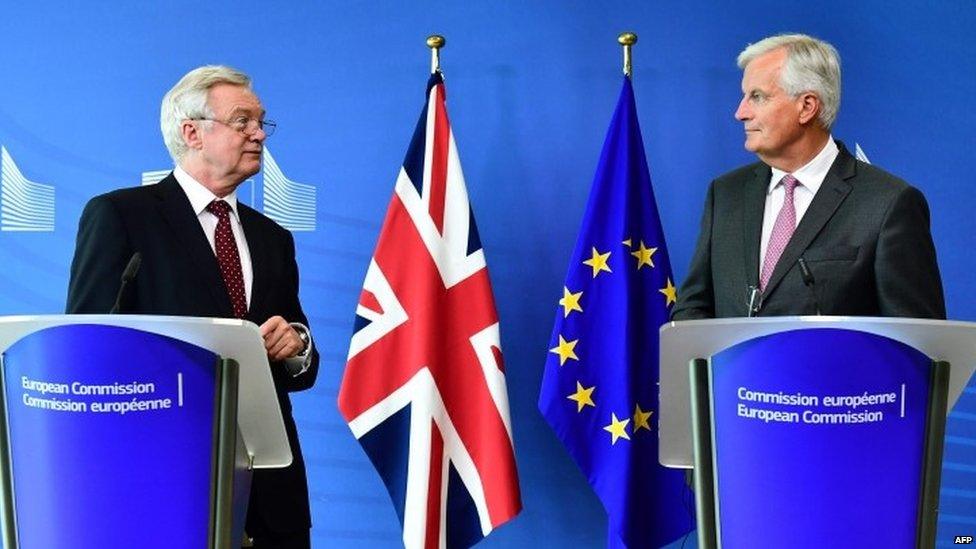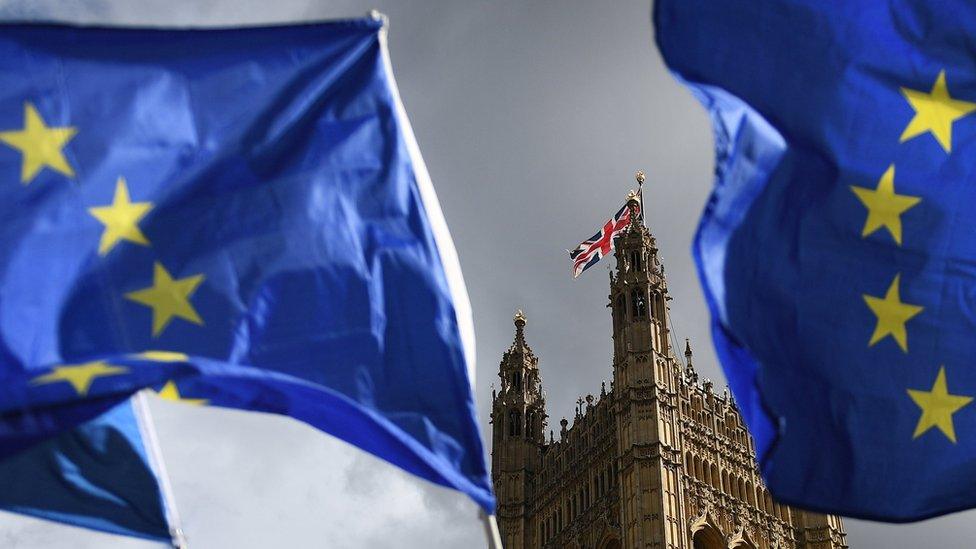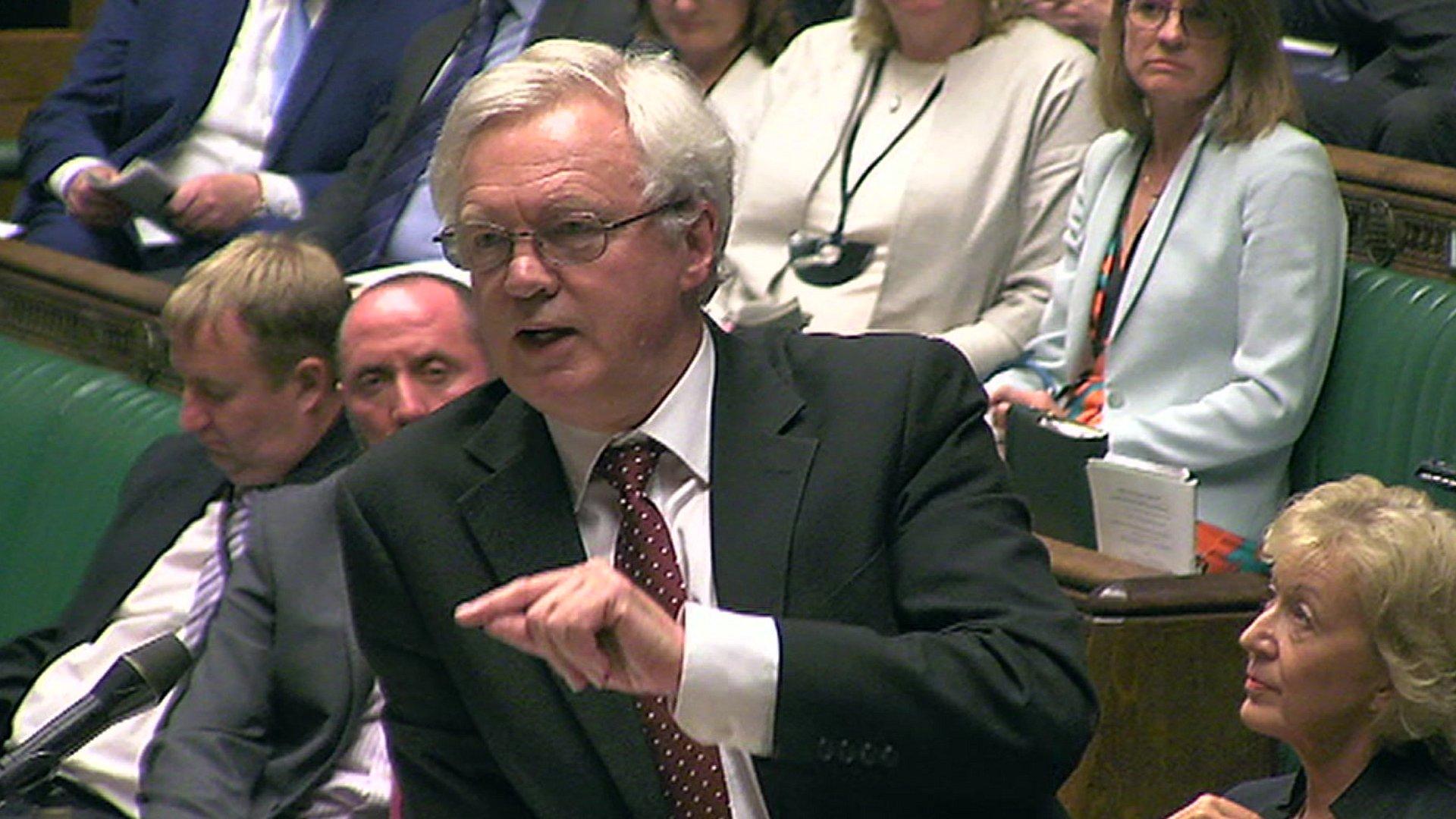Brexit: Next round of talks delayed a week 'for consultation'
- Published

David Davis and Michel Barnier are currently meeting once a month
The next round of Brexit talks has been postponed by a week to "allow more time for consultation".
The fourth round of UK-EU negotiations, due to begin on 18 September, will start on the 25th instead.
The government said a short delay "would give negotiators the flexibility to make progress".
There had been been speculation that the talks could be moved to accommodate a major speech by Prime Minister Theresa May on the issue of Europe.
"The UK and the European Commission have today jointly agreed to start the fourth round of negotiations on September 25," the Department for Exiting the European Union said in a statement.
"Both sides settled on the date after discussions between senior officials in recognition that more time for consultation would give negotiators the flexibility to make progress in the September round."
Michel Barnier, the EU's chief negotiator, has emphasised the need to be flexible while also warning that the "clock is ticking" if an agreement is to be reached by the time the UK is scheduled to leave at the end of March 2019.
Talks between the two sides, led on the British side by Brexit Secretary David Davis, have been taking place once a month since June.
The UK is keen to intensify their pace and open discussions on the country's future relationship with the EU, including trade, as soon as possible.
At the moment, the focus is on core separation issues, including the rights of EU nationals in the UK and British expats on the continent, the future of the Irish border, and financial matters.
Speculation about the delay was fuelled when European Parliament chief negotiator Guy Verhofstadt claimed an "important intervention" would be made by the PM "in the coming days", although this has not been confirmed by Downing Street.
Reuters also quoted diplomatic sources as suggesting that there could be a hold-up in the talks to allow for an event in the UK's "domestic political calendar".
The PM's loss of her Commons majority following June's snap election caused turmoil in the party and has made her more vulnerable to possible rebellions over key Brexit legislation.
Mrs May - who has insisted her Brexit strategy is unchanged and that she wants to stay as leader for the "long term" - is due to address the Conservative Party conference at the start of October.
- Published12 September 2017

- Published5 September 2017
